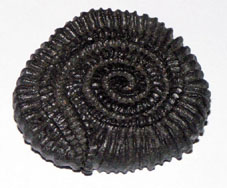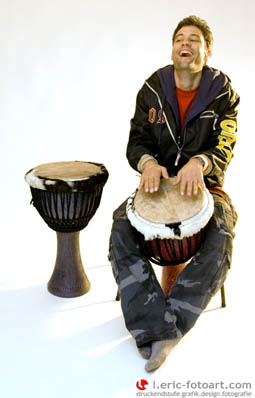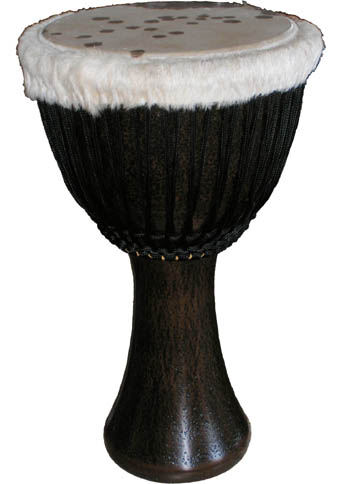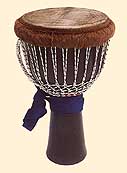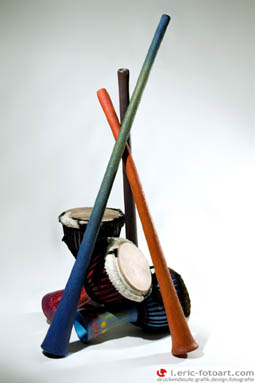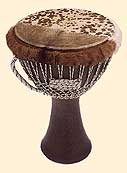

1st Hempstone
picture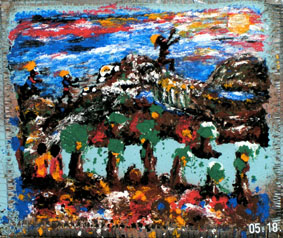 front: worshiping the sun 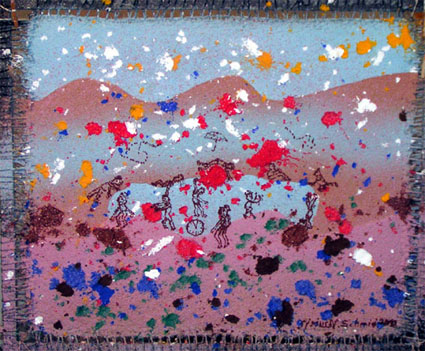 rear: last pool in desert |
|||
 |
|||
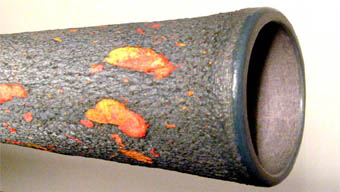 |
|||
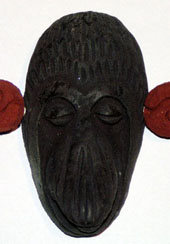 |
|||
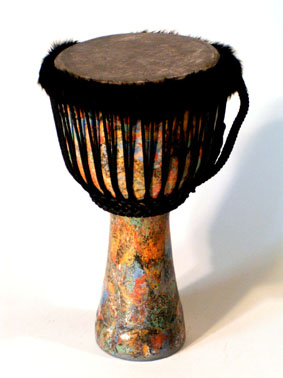 |
|||
|
|||
|
Hempstone
|
|
Hempstone R (Brandname for Zelfo made of Hemp) Is produced purely of Hemp fibre without additives, glue or synthetic adhesive agents. Hempstone R is as hard as stone even though it´s
purely made of pulp. In our way of production it´s dyed with
non-toxic pigments. How much wood (precious tropical wood) is wasted
while building a 8kg Djembe
Like synthetic yet natural. Hempstone comes from nature, Hempstone returns to nature, Hempstone is nature.
Visite also our gallery
Apart from its ecological characteristics, Hempstone is extremely robust, these instruments are absolutely free of cracks, very light and supply incomparable performance, artfully constructed with a colourful design, and still made purely of natural components. Our extensive long term experience with percussions allows us to create instruments of the highest quality with optimal resonance parameters. The instruments can bring a lot less weight to the scale, without suffering a loss of resonance (ca. 4kg Djembe, ca.1.5 Didgeridoos) and are creatively versatile designable. The diapason (acoustic form) of the instruments lets itself be exactly designed and consequently can be optimised at wish. Additionally
we can adjust the acoustic characteristics of the material. Hempstone
timbre is modifiable- from wooden to metallic-ceramic, depending
on the materials mixture (degree of grinding).
Zelfo R , Hempstone R is the universally used
term for the patented material. Why do we use hemp fibre
for Hempstone R ? Hemp is a very precious,
frugal, efficient and because of that an environment-friendly ancient
cultural plant. No pesticides or herbicides are needed for its growth
(as it is in nature a weed). It has been in use by humanity in many
different ways for thousands of years. During the colonization of America through the Europeans every landowner, under threat of punishment, was obligated to plant hemp in the "New world", as it was expensive and complicated to import the fibre bales for sails and ropes from Europe. The history of hemp is exciting and a perfect example for the ecopolitical propaganda, and the technical, scientifical wrong turns of the human culture. We hope that our work is a little contribution to rehabilitate this valuable plant and to ecologically help to relieve our earth of poisons and toxics in the near future. http://en.wikipedia.org/wiki/Hemp Hempstone: "You take fibrous plants (hemp,
straw, flax) "Experience shows that Hempstone is made of
a hemp fiber mush, "Cellulose material made of plant cells a universal
substance,
|
||||||||
|
Traders and partners
DrumParam is authorised trader of Schlagwerk-Percussion. |
